The sad closing of Iowa Wesleyan University
It shouldn’t be happening, the columnist believes, but it is. And all Iowans should feel some shame about that. Here's his long look at it.
MOUNT PLEASANT, Iowa – When a well-established Iowa college closes – and a half-dozen or more of them have done that in my lifetime – I always feel a little shame.
We all should.
It’s like our society is breaking faith with young people of the past, and denying opportunity to young people of the future. And we all know that when a college fails, its town or city is going to get clobbered.
Iowa may well have been at its best when we were opening and growing our colleges and universities – and at one time we had about 50 of them. Most have weathered wars, depressions, disasters and even pandemics. They’ve given us so much –education, culture, economics, entertainment.
Past generations found ways to sustain most of them. Are we of today going to do that? How do we measure up?
On Sunday, I was rolling all that around in my head as I drove to this southeast Iowa city of 8,900 for a courageous and inspiring last concert at Iowa Wesleyan University, with the performers including students, faculty, alumni and friends of Wesleyan from all over the area. The last graduation ceremony was held on Saturday.
We all heard the grim news earlier this spring that this 181-year-old private college is deeply in debt and closing.
Youngsters Sunday afternoon playing ring-around-the-senator after the concert in University Chapel at Iowa Wesleyan U in Mount Pleasant. James Harlan was the first president of Iowa Wesleyan, then served 16 years as a powerful U.S. Senator.
I guess they’ve tried about everything in the past decade to avoid this.
Current President Christine Plunkett, her cabinet and the board of trustees had come up with an alliance with the publicly funded Southeastern Iowa Community College that many thought could be a trend-setter for small private colleges across the U.S. While they’d grown enrollment this past year to more than 800, and were projecting 1,000 students soon, the plan apparently was not working quick enough.
So, farewell to IWU, which has been the “oldest, continuously-operating, coed college west of the Mississippi River.” It was chartered by Iowa’s Territorial Government, and a dozen years later became sponsored by the old Methodist Episcopal Church.
Indeed, it was founded four years before Iowa became a state. The campus is about six square blocks of some of our state’s richest history. Think about that.
It made Mount Pleasant special in the southeast corner of the state. The late Tom Bell, father of former Iowa First Lady Christie Bell Vilsack and an Iowa Wesleyan graduate himself, “always said the difference between a one-horse town and a two-horse town is a college,” Christie told me.
Blair Buffington, Iowa Wesleyan director of choral activities directs choir, band and symphony members in the school’s final concert on Sunday, May 7. The University Chapel performance hall was full — and hot.
The Vilsacks – Christie and Tom – are grieving as much as, probably more than, most Wesleyan supporters are right now. And without wanting to be, they’re in the middle of whatever is to become of the Wesleyan campus here in what was their Iowa hometown. When in Iowa now, they live just west of the Des Moines area.
They’re caught in the middle of this, as I was saying, partially because Tom is now in his 11th year as U.S. Secretary of Agriculture.
In his eighth year in that position, in 2016, the U.S. Department of Agriculture gave Iowa Wesleyan $26 million in a mortgage and loan guarantees, with the campus as collateral.
There was nothing illegal about that. The USDA has funneled hundreds of millions of dollars – maybe billions – into Iowa over the decades in support of rural development. Iowa Wesleyan has always been an important economic asset for rural southeast Iowa and beyond. And Tom Vilsack told me that Wesleyan is “one of four colleges in Iowa and eight colleges across the nation that USDA has and is assisting.” Two Rivers Bank is also a secured creditor of Wesleyan.
U.S. Secretary of Agriculture & former Governor of Iowa Tom Vilsack.
Now that the school is closing, it means that Secretary Vilsack’s USDA, as the major creditor, is in charge of sorting out the financial mess at the college and determining how the assets are to be divided. That’s got to be uncomfortable for him.
“There is no definitive plan for ‘what happens next’,” Vilsack wrote in an email to me on Monday. “Options will be explored. Other colleges or community colleges may be approached about buying the campus. Foundations could be approached to see if the campus might be of interest as a headquarters or convening location. The buildings could be sold off separately to a willing buyer. The USDA team that gets involved in assisting a liquidation has been challenged to think as creatively as possible.”
Before he was governor (1999-2007), Vilsack was an attorney in Mount Pleasant, and in the early years of his private career, he taught business law a couple years at Iowa Wesleyan as an adjunct professor.
Many will remember that he started his public career in late 1986 when a deranged man walked into City Hall in Mount Pleasant, began yelling about a sewer water back-up in his basement, shot and killed the very popular and successful Mayor Edd King, and wounded city council members Joann Sankey and Ronald Dupree.
Vilsack, then 35 years old, was soon asked by King’s late father to take over as mayor. He led the city in a rebound from the tragedy, then in 1993 was elected to the Iowa Senate, where he served until being elected governor. President Barack Obama appointed Vilsack as agriculture secretary for two terms, then President Joe Biden returned Vilsack to that position.
Christie Vilsack has deep ties to Iowa Wesleyan, too. Relatives in at least two previous generations of her family went to college there. She became a teacher, taught most of her career at the middle and high school levels in Mount Pleasant, but also taught communications and journalism at the college for a half-dozen years. She has served two stints on the Wesleyan board of trustees.
“I served until a month ago when we realized that USDA would be responsible for the campus,” she wrote me in an email. “I resigned my position so Tom could be actively involved with the process moving forward.”
Michael Knight, Iowa Wesleyan director of bands, directing the musicians and audience in the “Wesleyan Hymn” at the start of the concert.
There’s another intriguing factor in the Wesleyan collapse.
A sort of last straw for the school came in March, when its board asked the State of Iowa for $12 million in financial assistance, which might have been available in federal COVID relief grants directed for the state. Gov. Kim Reynolds, citing Wesleyan’s dismal financial performance for the past eight years or so, rejected the request.
Of course, she’s a Republican and the Vilsacks are Democrats. People will be debating for years whether political rivalry had anything to do with the turndown of Wesleyan’s plea for help from the state.
“I am disappointed that IWU did not get a chance to get to a student population up to 1,000,” Tom Vilsack wrote me. “It might have made a go of it, and the model with Southeastern Iowa Community College could have been available for other colleges that struggle – there will be many as student populations decline over the next year. The governor had a formula for deciding who got COVID relief, and unfortunately IWU did not fit into the formula. Southeast Iowa will certainly suffer economically with the college closing.”
I had always hoped that at some point after Tom Vilsack’s years in state and federal office, he and Christie would return to Mount Pleasant, one or the other of them would become Iowa Wesleyan president, and the other would be its roving ambassador. I would hang out there, teach journalism and keep the scorebook at the Tigers’ baseball games, tra-la, tra-la.
Too late for that now, I guess. But did the Vilsacks ever consider it?
Christie did not answer that question directly, but talked about how important Wesleyan has been, especially in its emphasis on educating young women.
Tom? “I have been approached in the past about leading a university but I had a hard time seeing myself in that role,” he wrote. “I did enjoy a fellowship I had at Harvard, and when this ag gig is over, if a college or university would have me I might like to teach and lecture, so I could be around bright, young people. I did that at Drake after I left the governorship and liked the experience as well.”
Clarinet players in the Sunday concert. Musicians included members of the Southeast Iowa Symphony, which has long been based at Iowa Wesleyan, as well as alumni, other friends of the college, and its last students.
The concert Sunday afternoon in old University Chapel made me think of that line by actor James Earl Jones’s character Terrence Mann, about how people would come to a “Field of Dreams” in Iowa to discover things about themselves: “The memories will be so thick, they’ll have to brush them away from their faces.”
In a recent news release announcing that a concert, titled “Wesleyan, We Love Thee,” would be held, Blair Buffington, the school’s director of choral activities, noted that “it is very hard to say goodbye to something that has been so embedded into our lives and our community. This concert– the reunion of alumni and friends– and our collective music will allow us all to celebrate IW’s legacy and help us bring closure to this chapter of our lives and find some healing.”
In an opening invocation, alumnus Rev. Wayne Kamm said the music would give everybody an afternoon, at least, when “grief is lost and celebration is now in our midst.”
Then director of bands Michael Knight led a band and the crowd in the “Wesleyan Hymn,” the school’s alma mater. It uses the tune of “O Tannenbaum” and has these stirring lyrics, which you can sing right now as you read this:
Wesleyan, thy honored name, Lift we on our voices;
Noble college in whose fame, Ev’ryone rejoices;
In thy halls assembled here, Sing we Alma Mater dear;
Loud a song of praise sincere, Wesleyan we love thee.
Let the purple and the white, Ever float above thee;
Signs of loyalty and right, Proved by all who love thee;
Thou has sons and daughters true, Taught by thee to dare and do;
Now they pledge themselves anew, Wesleyan to love thee.
Memories and tears came quickly in the sweltering heat of the chapel building. We were all brushing them away from our faces.
Lots of memories among the performers Sunday at Iowa Wesleyan.
I brought along my own Wesleyan memory, and I share it now in this story even though it’s silly and perhaps inappropriate.
In November, 1988, I was the invited speaker at one of the college’s weekly or monthly “Forum” events for students. I spoke in the same University Chapel where the last concert was held Sunday. I recall telling the students that the words to their alma mater were fine, but using “O Tannenbaum” as a tune seemed strange. I suggested that some talented student or graduate should write an original tune.
In the meantime, I said, we might as well try out the tunes from other Christmas carols. And then I led the student body in singing the “Wesleyan Hymn” to the tunes of “Silent Night” and then “Jingle Bells.” You’d think I’d be embarrassed now. But I’ve often called myself “the eternal sophomore,” and my presentation was certainly sophomoric.
More appropriate on Sunday, and subsequently, is remembering some great people and moments in the history of Iowa Wesleyan.
A statue of one of them stands in front of the University Chapel building. It’s the life-size portrayal of James Harlan, the Mount Pleasant man who in 1853 became the college’s first president. Two years later, he was elected to the U.S. Senate, where he served 16 years. He was a close friend and ally of President Abraham Lincoln. In fact, Lincoln’s son married Harlan’s daughter.
On the west side of the campus is fantastic statue of Belle Babb Mansfield, an 1859 graduate of Wesleyan who went on to law school and became the first woman in the U.S. to be admitted to the bar.
An iconic statue honoring one of the college’s most notable graduates. That’s a side view of Old Main in the background.
The PEO Memorial Library on the Iowa Wesleyan campus.
In 1869, seven women students founded the philanthropic and educational women’s organization, PEO, which spread across the nation and beyond, and is still very active. In 1927, the organization built the “PEO Memorial Library” on the Wesleyan campus for use by students. It’s been an art gallery most recently. I’m told there is still a “PEO Memories Room” in IWU’s Old Main.
Graduates distinguished themselves with their service in both World Wars in the first half of the 20th century.
In 1935, the school graduated James Van Allen, the Mount Pleasant native who went on to become a nationally-acclaimed astro-physicist at the University of Iowa. He was a key figure in the nation’s development of its outer space exploration program.
Interestingly, Wesleyan is also the alma mater of one of the America’s top astronauts, Peggy Whitson, of tiny Beaconsfield in southern Iowa, who graduated in 1981.
The 1940s are remembered by the oldest Iowa Wesleyan sports fans as the “Olan Ruble era.” He served as the head coach in football, men’s basketball and baseball for most of the decade, and established the Tigers as one of the powers in the old Iowa Conference. The most recent home for Wesleyan’s basketball program is Ruble Arena.
One of Coach Ruble’s stars in the early 1940s was “Bruisin’ Bub” Krieger, an All-American football player. Krieger later fathered a houseful of Krieger daughters who were great basketball players in southeast Iowa. The lineage continued in recent years with two of Bub’s great-grandsons becoming star players in the National Football League – Henry Krieger Coble, now retired, and George Kittle, who is still playing.
A Krieger grandson is Jess Settles, the star basketball player for the Iowa Hawkeyes and now one of the best basketball commentators on TV’s Big Ten Network. He also served as head men’s basketball coach at Iowa Wesleyan from 2011-2013. “It was a great place to cut your teeth as a young coach,” Settles said. “You could make mistakes and learn to coach without being overly scrutinized.” He says he might still be coaching except that in 2013, he decided he had to get serious about becoming a farm partner with his father on the family farm outside nearby Winfield. His wife Joanna Settles taught educational psychology at Wesleyan for several years. Jess Settles called the Wesleyan shuttering “devastating news for the Mount Pleasant community and southeast Iowa.”
No mention of notable Wesleyan coaches can be complete without homage to Hal Mumme and Mike Leach. They came to Mount Pleasant as very young men in 1989 to take over the woebegone Wesleyan football program after being unable to get jobs elsewhere. In their two seasons here, they created the “Air Raid” offense which revolutionized the way college football is still played today. Mumme, who was the head coach at Wesleyan, used that same offense when he was later leading six other major college programs, including Kentucky and New Mexico State. And Leach used the Air Raid to build programs he headed at Texas Tech, Washington State and finally Mississippi State, where he died last December.
Among the most revered Wesleyan faculty members and administrators are the late Rev. George LaMore Jr. and Carol Nemitz.
LeMore was a chaplain and professor of religion for 43 years. But he’ll long be remembered for two other accomplishments. He gave hundreds of motivational speeches for high school commencements and the annual banquets of civic organizations all over southeast Iowa and beyond. Plus, he created what might be Wesleyan’s most acclaimed program in its “service learning” requirement. Every Wesleyan graduate since the early 1960s has been required to complete 160 hours of community service in what LaMore named the “Responsible Social Involvement” (“RSI”) program. The college says its graduates have by now have completed more than 1 million of hours of such service to the community and area. LaMore died in 2014.
Carol Nemitz, a 1956 Wesleyan graduate, spent the next 50 years of her life in various positions there, eventually becoming dean of the college, later vice-president of student affairs, and in retirement became the IWU liaison to the PEO.
And there’s Dolores Graf Poulter Wilson, a 1963 graduate who served 56 years as a biology professor. In 2018, when Wesleyan’s financial troubles first threatened the future of the school, she came forward with a $500,000 donation that jump-started a fundraising campaign among alumni, helping delay closure until now.
There are other Wesleyan heroes and heroines whom I’m unaware of or have forgotten.
But you can bet that all of them were being remembered by somebody in the audience Sunday afternoon during the concert.
One of the final graduating seniors, Katie Schmidt, of Burlington, sings in the concert Sunday.
Those memories were building for 90 minutes as the audience listened to stirring and emotional performances of Brahms, Karl King, Bruckner, Dale Grottenhuis, Arcadelt, Beethoven, and Journey.
“Journey,” the rock band?
No, it was Allison Journey, of Chicago, a graduating senior at Iowa Wesleyan University in its last year.
She composed “With You,” and at both the Saturday graduation and Sunday concert, Journey played it on piano while directing the choir and leading the singing of it. If the song becomes a hit, and it sounded like it could, we’ll all remember where we heard it first. The closing lines:
In the chaos, still feel peace
Unconditional love
Amidst madness, certainty
With you is where I long to be.
Choir director Blair Buffington, who organized the concert, addressed the audience at the conclusion, saying, “We thank you for your kind attention and your gracious applause. May God grant you safe journeys.”
Wesleyan, we love thee.
You can comment on this column below or write the columnist directly by email at chuck@offenburger.com.
—





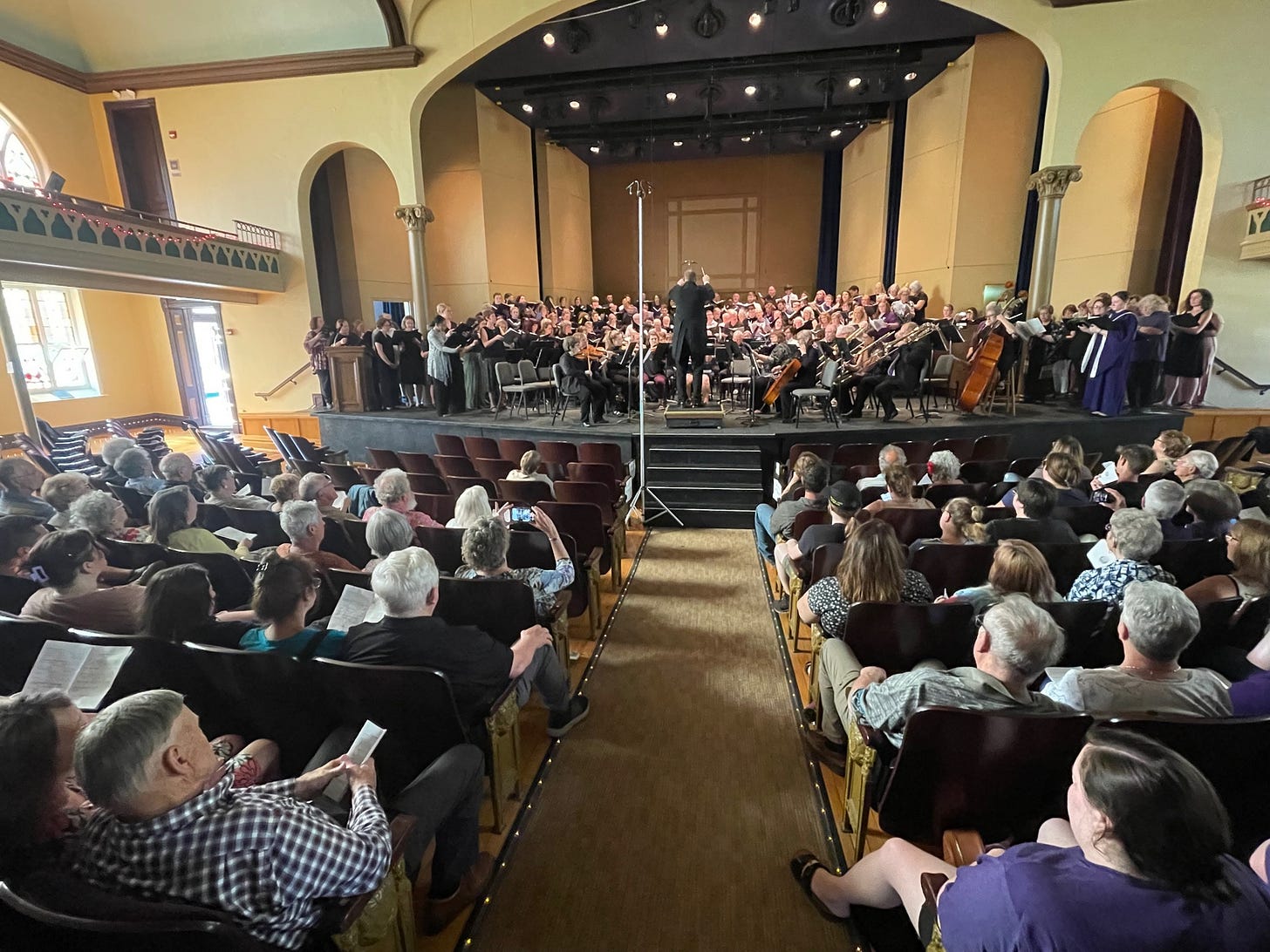
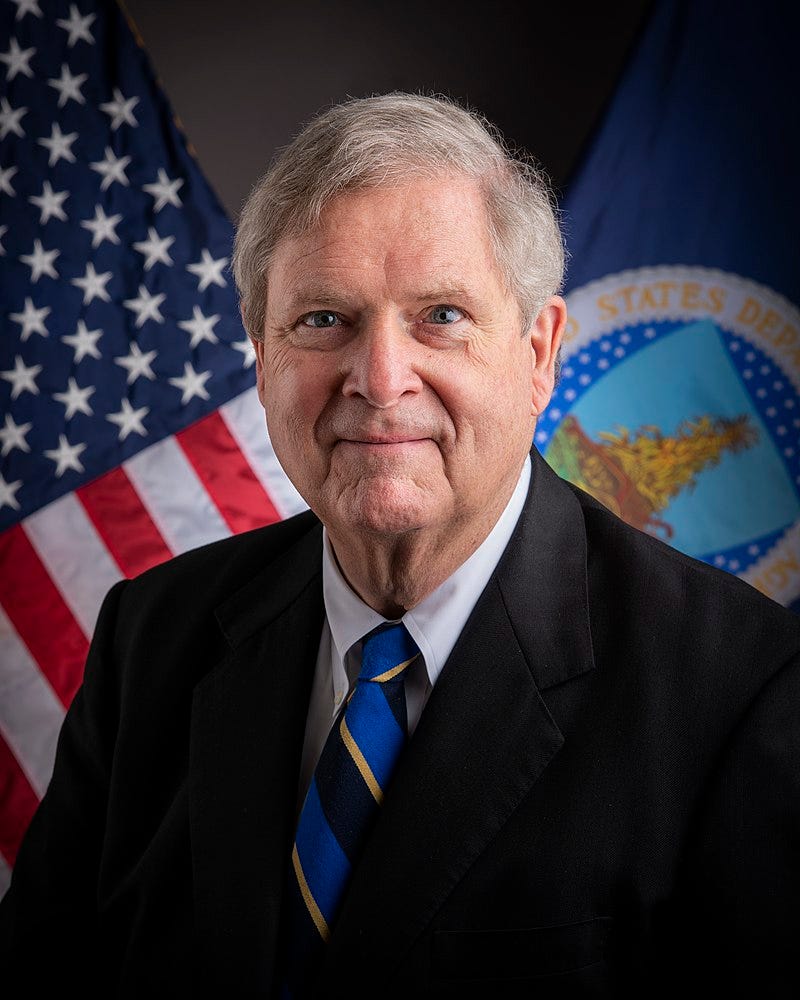
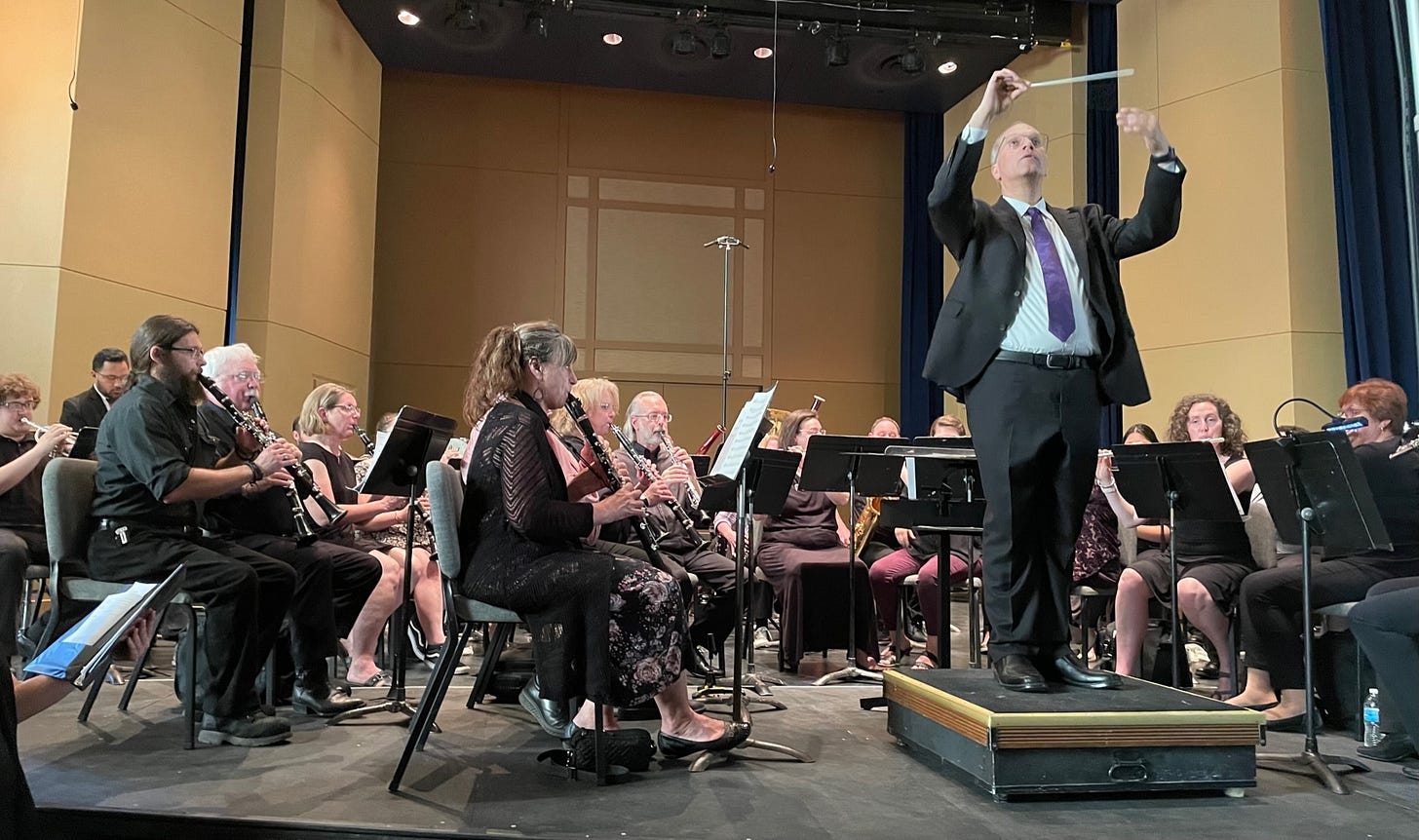
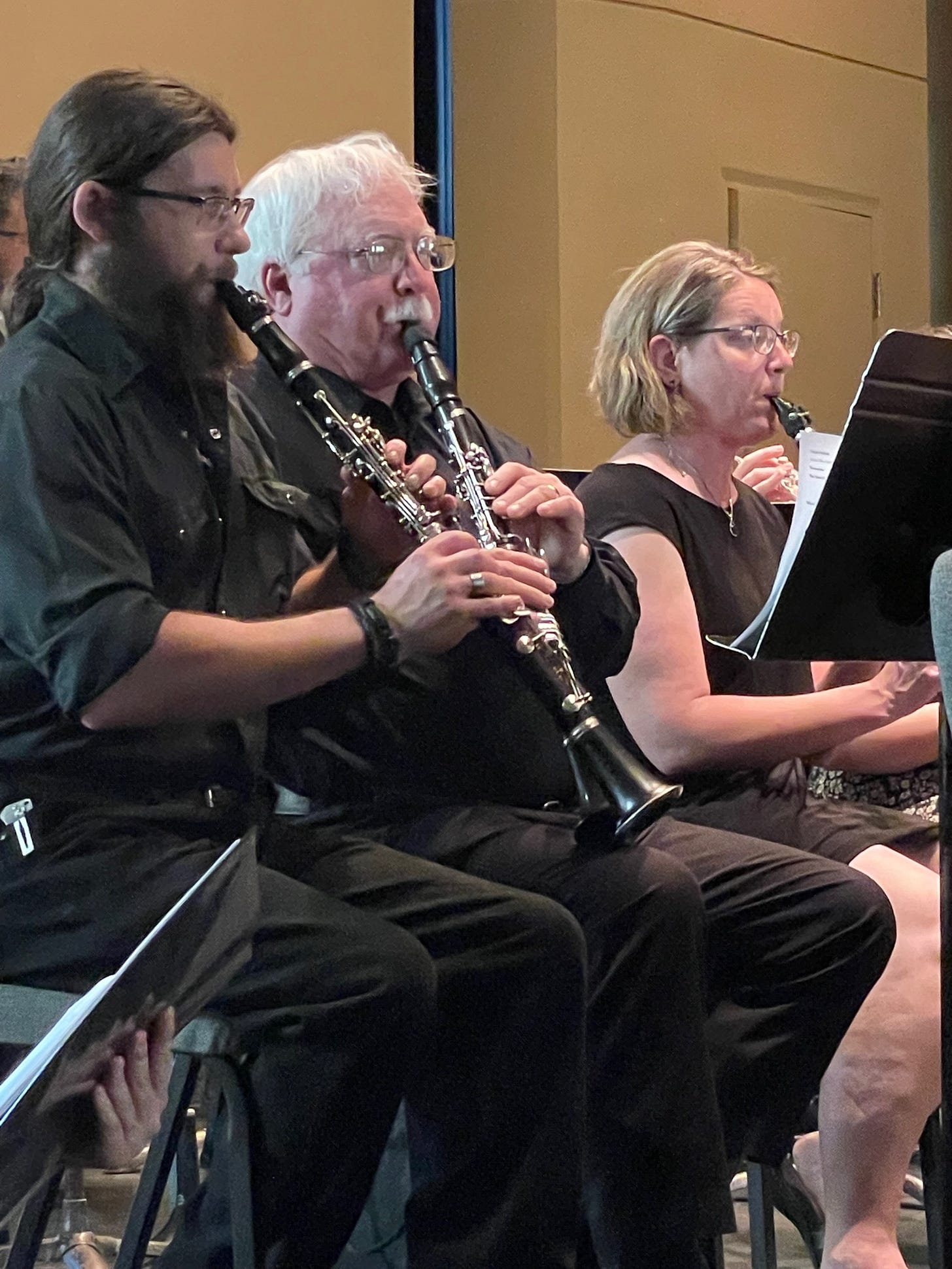
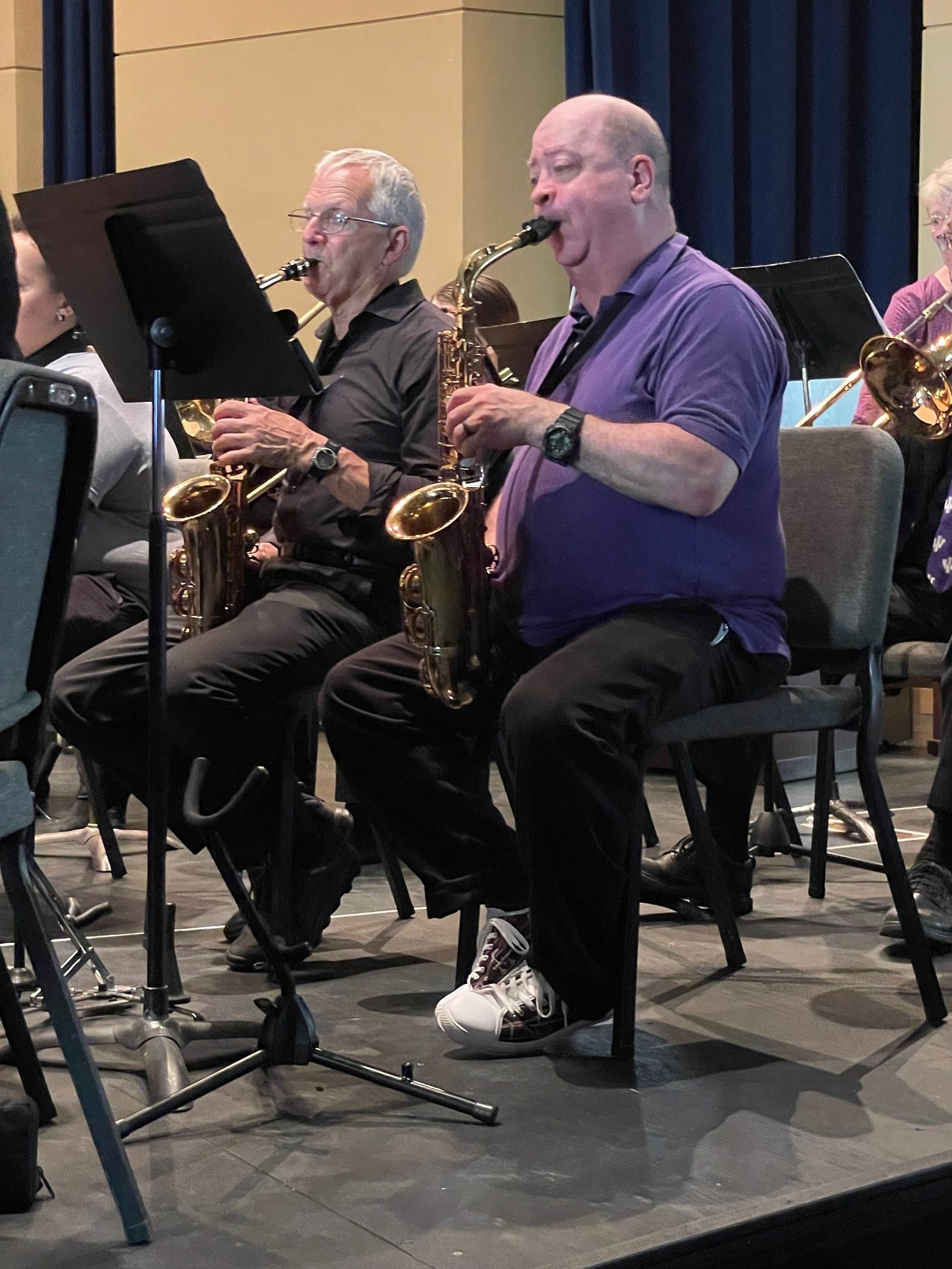
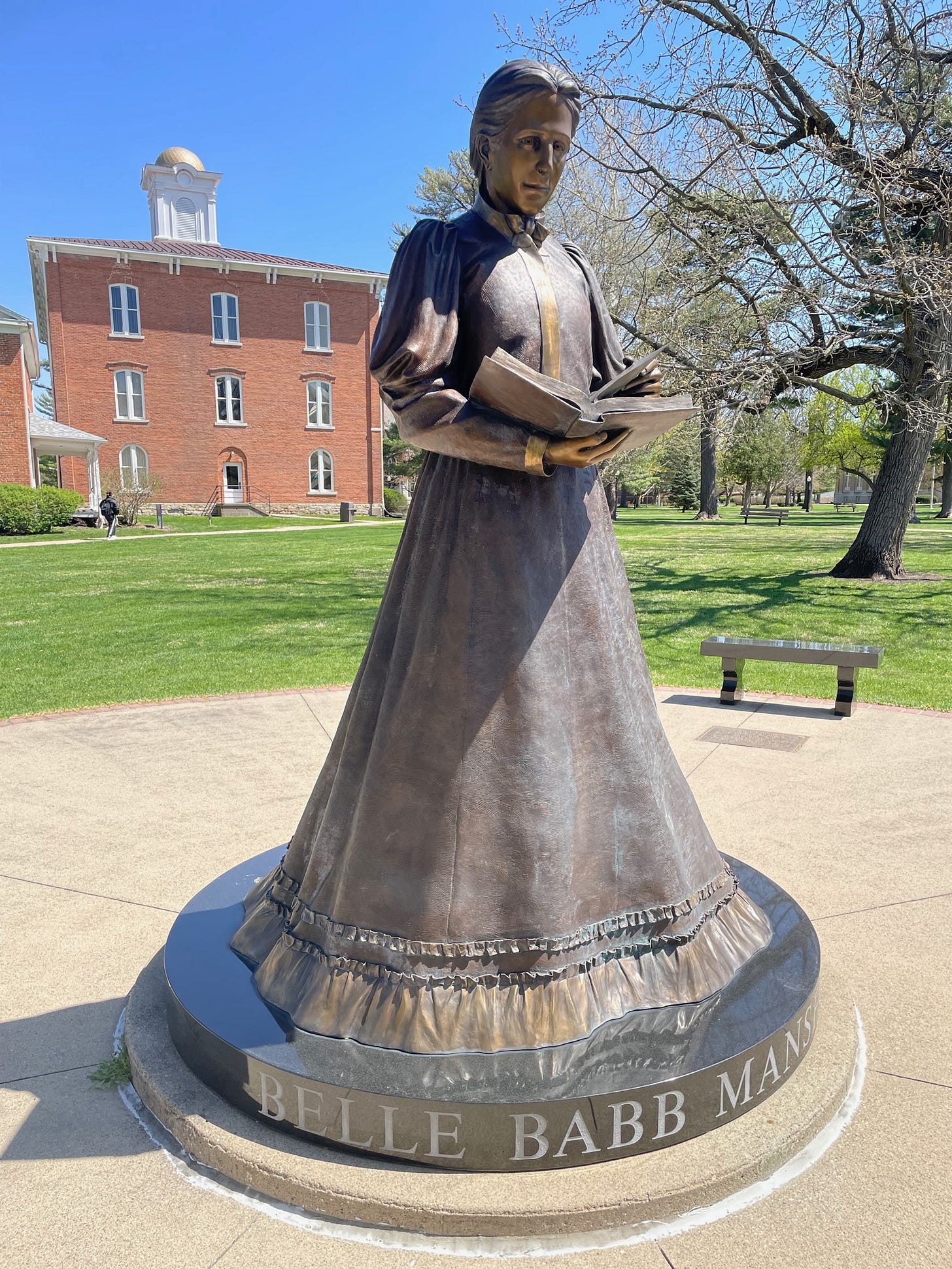
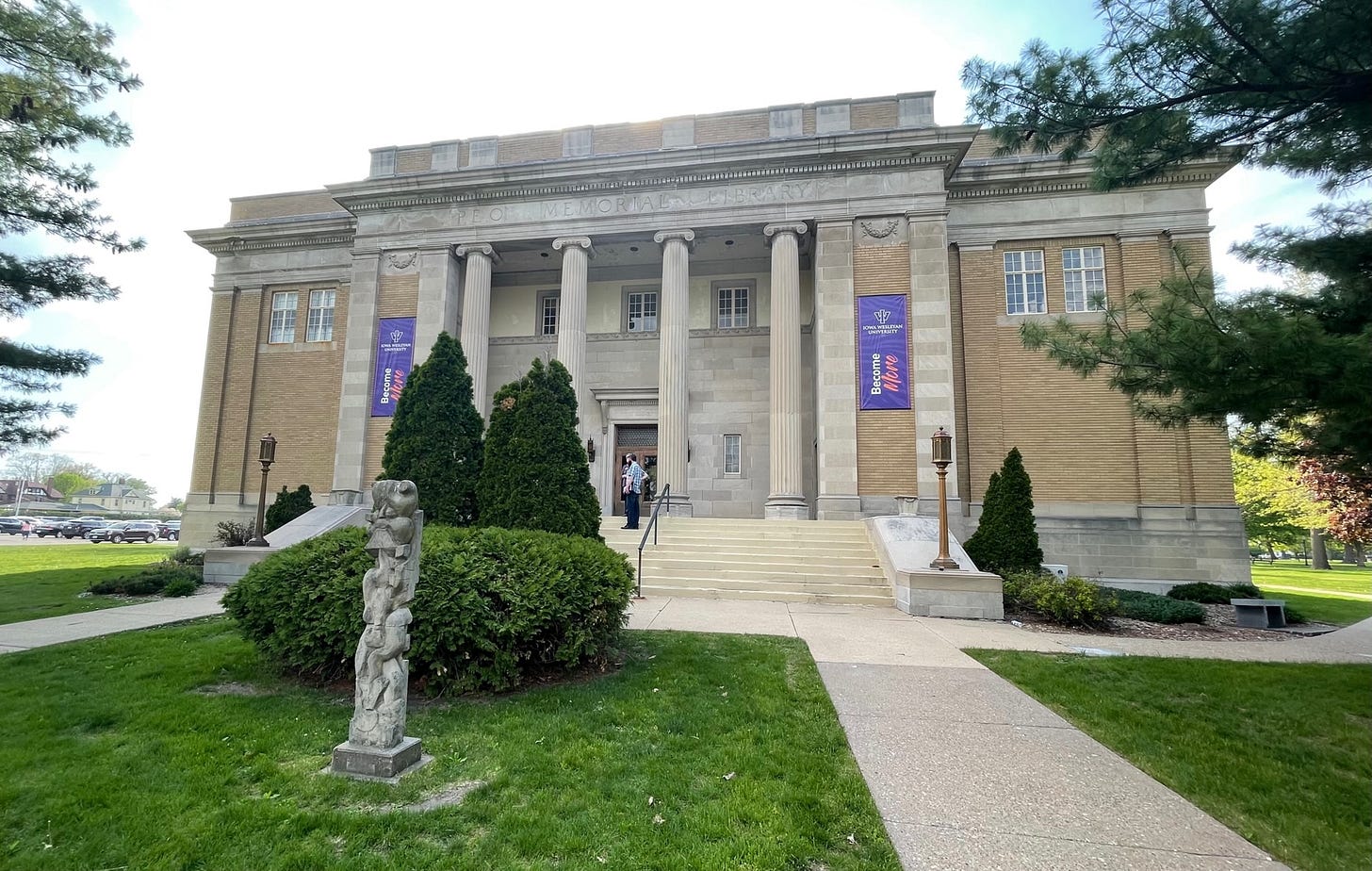
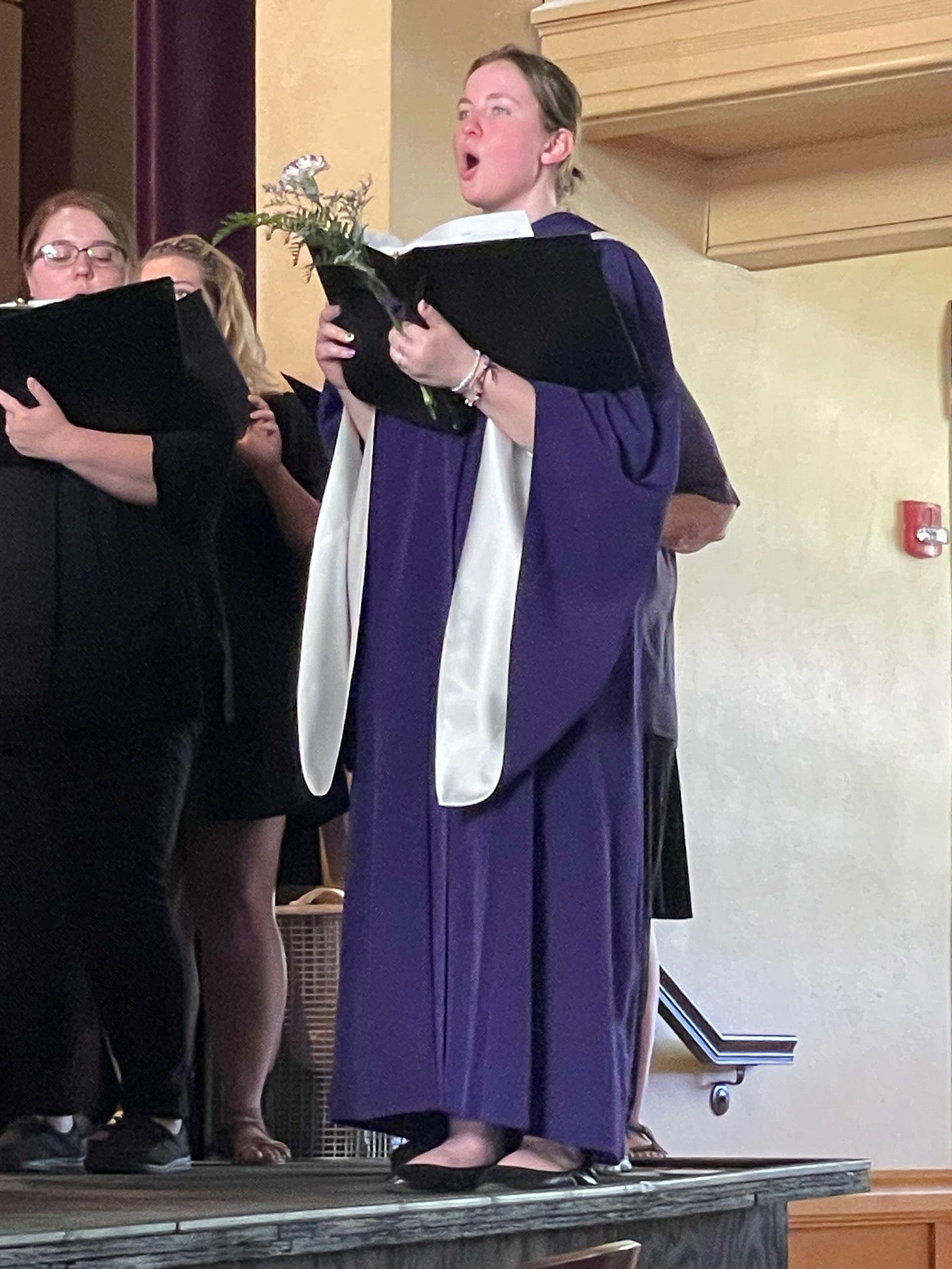
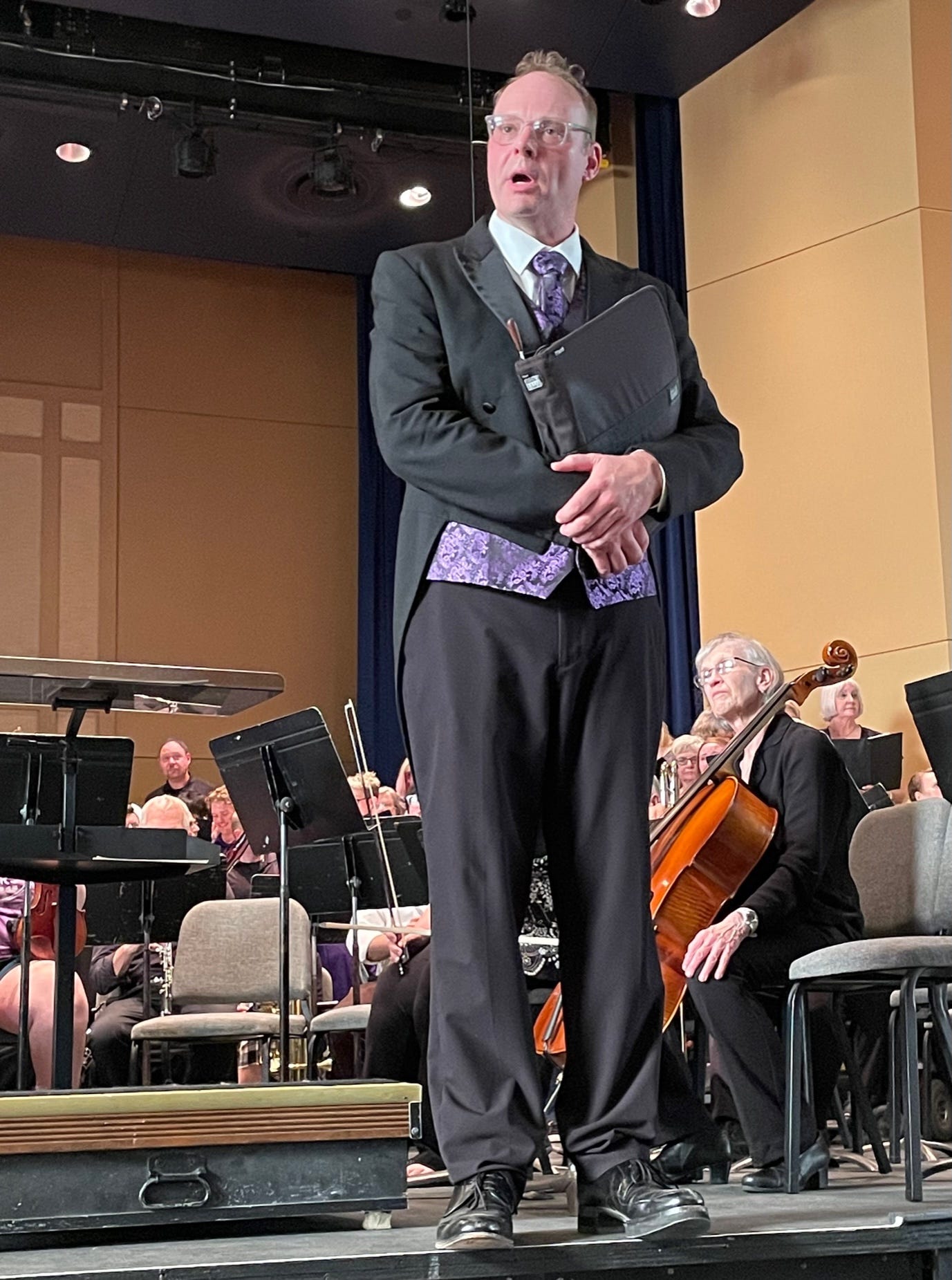
Offenburger at his best as storyteller, reporter, historian and Iowan. No one does this better than Chuck in Iowa.
This comprehensive, sensitive column should be archived at IW. What a sad turn of events. The disdain Iowa’s Republican leaders have for education shows itself again. I feel for Mt. Pleasant.